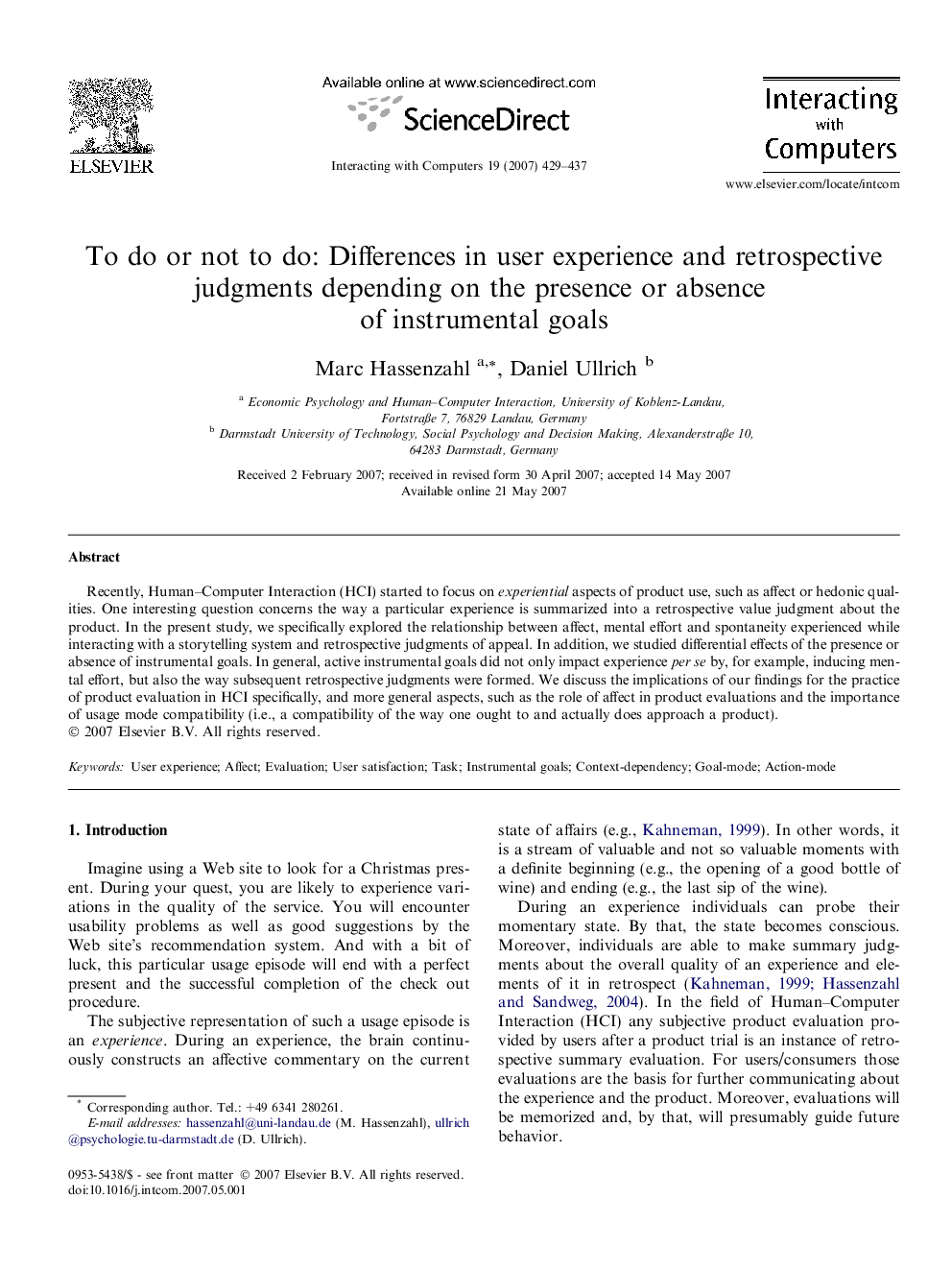| Article ID | Journal | Published Year | Pages | File Type |
|---|---|---|---|---|
| 550999 | Interacting with Computers | 2007 | 9 Pages |
Recently, Human–Computer Interaction (HCI) started to focus on experiential aspects of product use, such as affect or hedonic qualities. One interesting question concerns the way a particular experience is summarized into a retrospective value judgment about the product. In the present study, we specifically explored the relationship between affect, mental effort and spontaneity experienced while interacting with a storytelling system and retrospective judgments of appeal. In addition, we studied differential effects of the presence or absence of instrumental goals. In general, active instrumental goals did not only impact experience per se by, for example, inducing mental effort, but also the way subsequent retrospective judgments were formed. We discuss the implications of our findings for the practice of product evaluation in HCI specifically, and more general aspects, such as the role of affect in product evaluations and the importance of usage mode compatibility (i.e., a compatibility of the way one ought to and actually does approach a product).
